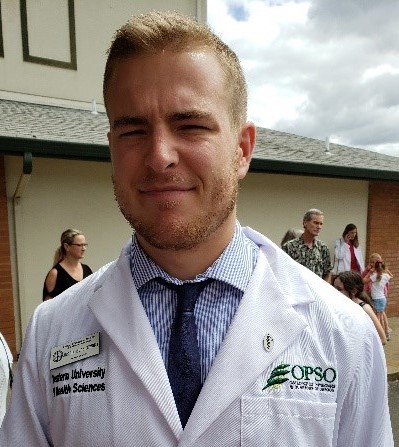Students in the Department of Biological Sciences can choose to pursue a Bachelor in Biological Sciences with a concentration in one of four areas:
- Biology
- Cellular, Molecular and Developmental Biology (CMDB)
- Ecology, Evolution and Organismal Biology (EEOB)
- Secondary Education
For those seeking a two-year degree, the department offers an Associate Degree in Science with an emphasis in biology. Students may also pursue a minor in biology.
For students in the Biology track or the EEOB track, check out the Biology Club (advisors Dr. Patrice Connors and Dr. Megan Sherbenou) to connect with other students in your major and the Fish and Wildlife Club (advisor Dr. Eriek Hansen) if you are specifically interested in making connections with local agencies that include the BLM, Colorado Parks and Wildlife and the Forest Service.
For those students on the CMDB track and who are interested or planning to further their education in the health sciences, veterinary medicine or graduate school, be sure to consult the Pre-Professional Preparation webpage and their advisors in biology. Additionally, these students should plan to get involved with the Graduate Education and Medical Sciences (GEMS) club (advisor Dr. Shay West).
The strength of the biological sciences concentration lies in its flexibility. Students take core required courses as they begin their degree program and then go on to specialize in their fields of interest with their upper-division classes. So whether a student chooses to pursue a career in medical sciences or wildlife biology or any other specialty in the biological sciences, the degree program is individualized enough to ensure excellent preparation.
Academic Requirements for Bachelor of Science in Biology, Biological SciencesThe cellular, molecular and developmental biology concentration provides a solid background in cell and molecular biology, genetics and developmental biology. Students begin by taking core required courses and then go on to specialize in their fields of interest with further upper-division coursework. This concentration prepares graduates for many career options including medicine, cell biology and biotechnology.
Academic Requirements for Bachelor of Science in Cellular, Molecular and Developmental Biology, Biological SciencesThe concentration in ecology, evolution and organismal biology provides a solid foundation in ecology, evolution, and organismal diversity. Students begin by taking core required courses and then go on to specialize in their fields of interest with further upper-division coursework. This concentration prepares graduates for many career options including fish and wildlife biology, botany, zoology and ecology.
Academic Requirements for Bachelor of Science in Ecology, Evolution and Organismal Biology, Biological SciencesThis concentration is for biology students wishing to teach at the secondary level. They begin their degree program by taking courses that give them an excellent background in biology and they also receive instruction in chemistry, geology and physics. This ensures that the students will perform well on all of the sections of the exam they will need to take to earn their licensure in Secondary Education in Science.
Academic Requirements for Bachelor of Science in Education: Secondary Education, Biological SciencesStudents interested in earning a minor in biology begin by taking a number of core courses in biology. Then, to complete the minor, they choose among the many upper-division courses offered by the department.
Academic Requirements for Minor in BiologyStudents wishing to earn an associate degree in science with an emphasis in biology begin by taking coursework that will give them a solid foundation in biological sciences. They then complete their two-year degree by choosing several courses from upper-division offerings in biology. If, in the future, they choose to pursue a four-year degree, the core required courses that they have taken for their associate degree will give them a head start on the bachelor's degree in biology.
Academic Requirements for Associate of Science in Biology, Liberal ArtsGraduates of our program pursue careers in the medical field, botany, wildlife biology, cell biology or biotechnology, among many other career options.
College to Career
Beyond the high-quality science education she received, learning to be a mentor and a role model prepared Julie for her role as a chemistry teacher.
More about this graduateDeclaring your Major
Choosing an academic advisor early on during your program is one of the most important keys to success! To declare a major or minor in biology, please speak to Amy O'Campo in the Biology/PES Office in the Wubben Science Building, WS 232. She can also be reached at 970.248.1993 or at [email protected]


